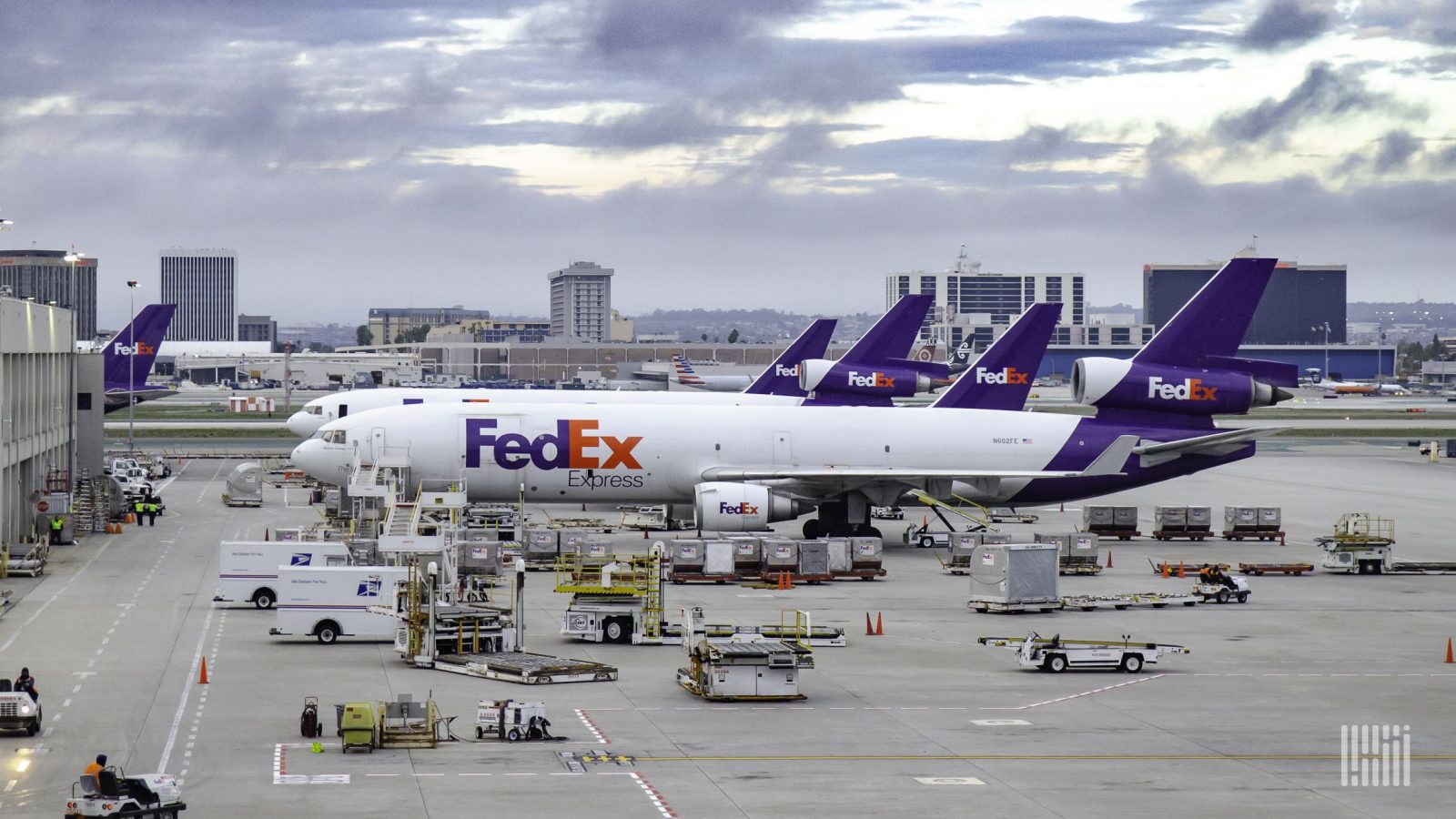FedEx’s first-quarter earnings will be announced at the end of Thursday. Wall Street will be keenly listening to learn how FedEx plans to revamp itself.
But there’s another takeaway.
Air freight is softening, contributing to FedEx’s woes
Typically the public doesn’t care much about logistics. COVID-19 changed that.
Through 2020 and 2021, folks cheered on truckers and watched container ships pile up at ports. Americans suddenly realized that everything they buy is almost certainly moved by a truck, ocean vessel or train at some point. Supply chain crunches hit close to home when cars, couches and clothing orders were delayed by weeks or months.
The fun is now over.
Amid all the fanfare, we seemed to forget about the mighty cargo plane.
Air freight carries less than 1% of all global trade by volume. Trucking and ocean shipping are the head honchos of our logistics world, with each touching nearly everything we consume or use at some point. Rail moves those necessary commodities we don’t consider, like wheat or lumber.
Though it plays in a different sector than other modes of freight transport, air cargo too has seen rates crumble in recent months. According to the Freightos Air Index, which measures spot rates in 191 airport lanes worldwide, air cargo rates are at their lowest point since Jan. 2021. They’ve fallen by 25% since the beginning of the year.
 Air cargo spot rates are plummeting. ( SONAR)
Air cargo spot rates are plummeting. ( SONAR)
For FedEx, the tumble in air cargo demand has been painful. FedEx Express is its air cargo unit, and the crown jewel of the company. The delivery giant reported last week that Express will generate some $174 million in operating income in fiscal year 2023 — compared to $567 million the year before.
But declining air freight demand doesn’t necessarily mean economic doom, some experts say
The decline is undeniable, but whether it means we’re in a recession or simply returning to normal remains the question.
On its face, FedEx’s declines are alarming.
Other experts remain more cheerful.
Digging specifically into air freight and FedEx’s ground delivery unit, Levine said one reason for the decline may be that fewer people are ordering stuff online. E-commerce shipments are sometimes placed on planes to arrive at your doorstep more quickly. If you’re driving to the store to go shopping, you obviously no longer need a FedEx driver to drop off your stuff.
Still, the issue isn’t necessarily that demand is down but rather that we’ve built up too much capacity across most modes of transport. We don’t need unusually high truck capacity or air fryers in stock, for example, if consumer interest is merely so-so.
“Demand is somewhat weak, but not catastrophically so,” Jensen of Vespucci Maritime told . “This is predominantly not a demand issue but a supply issue.”
Wall Street is not giving FedEx a pass, even as its CEO insisted its bad earnings were a sign of international weakness. Deutsche Bank analyst Amit Mehrotra wrote in a note Thursday morning that this earnings call “will probably be the most consequential in recent history for FedEx as we believe that market participants want to see a sense of urgency and evidence of more meaningful change.”
FedEx was bizarrely unprepared — and so were Target, Amazon, Ford and other big names
It’s a little jarring how poorly prepared our corporate overlords were for the inevitable drop-off in consumer spending.
FedEx, for example, seems to have expanded its air freight capacity through 2020 and 2021. That’s all jolly news, except that it’s hard to profitably run a fleet of cargo planes if they’re not chock-full of packages.
“FedEx’s air freight unit is not getting the utilization that it did,” ’ Strickland said.
As I wrote earlier this month, companies did not seem to realize that consumers would eventually stop spending so much money on random stuff online.
Retailers are so stocked up that we might skip out on a peak season altogether this year. Ocean freight should be soaring right now in preparation for the winter holidays, while air freight typically peaks in October or November.
Amid all this, FedEx is still looking to invest some $6.3 billion in capital expenditures. That’s a move that strikes analysts like ShipMatrix’s Satish Jindel as bizarre, he told ’ Solomon last week, considering the softening in freight demand.
“The writing on the wall is that the global economic environment has changed,” said Strickland, noting that FedEx had more of a buffer in the U.S. while international volumes in Asia and Europe were wallopped. “I think the real answer here is that FedEx was slow to react.”






